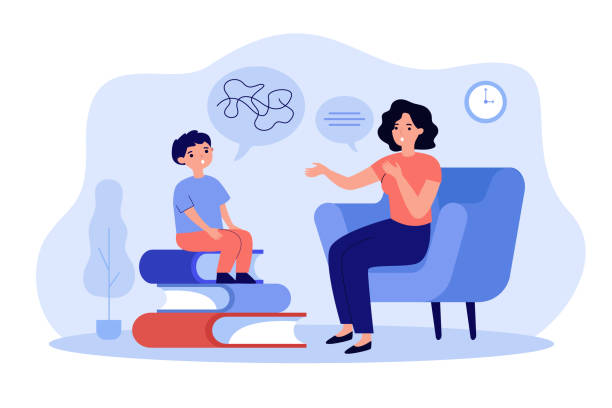Exactly How a Speech Pathologist Can Help Improve Interaction Skills
Efficient interaction is a cornerstone of individual and expert success, yet several individuals deal with obstacles that prevent their ability to express themselves plainly. A speech pathologist is outfitted to deal with these obstacles with targeted evaluation and treatment strategies tailored to every person's requirements. By using evidence-based restorative strategies, they not only work to improve speech and language disorders however likewise enhance general communicative skills. Understanding the complex duty of a speech pathologist exposes how their proficiency can transform lives, welcoming a more detailed exam of the specific techniques and results related to their technique.
Understanding Communication Disorders
Recognizing communication conditions is vital for identifying how they affect people' capability to share themselves and involve with others. Interaction disorders include a large range of difficulties that affect speech, language, and social communication, frequently preventing effective communication. These conditions can develop from various aspects, including neurological problems, developmental delays, physical disabilities, or mental issues.
Speech disorders may show up as troubles in fluency, voice, or articulation manufacturing, affecting how words are obvious or talked. Language conditions, on the other hand, involve challenges in understanding or making use of language, which can restrain both non-verbal and spoken communication. Social interaction problems are defined by difficulties in the practical facets of interaction, such as taking turns in discussion or understanding social hints.
The repercussions of communication problems are profound, impacting not only the individual's capability to convey feelings and thoughts but also their social relationships, instructional chances, and overall lifestyle. Awareness of these disorders can cultivate compassion and support, urging effective approaches for communication and involvement. Comprehending the complexities of interaction disorders is a vital step towards advertising inclusivity and dealing with the demands of those affected.
Duty of a Speech Pathologist
Speech pathologists often play an essential function in treating and detecting communication problems, employing a variety of evidence-based strategies tailored to every person's needs. These experts deal with individuals across the life expectancy, from children with speech delays to grownups recuperating from strokes or stressful brain injuries. Their competence incorporates a range of communication issues, consisting of articulation, fluency, language, and voice disorders.
In restorative settings, speech pathologists make use of organized interventions developed to boost interaction abilities. They might carry out methods such as speech exercises, language video games, and social communication training to facilitate enhancements in meaningful and responsive language capabilities. Speech Pathologist. Furthermore, they inform clients and their families about effective communication strategies and flexible approaches to browse daily interactions
Beyond straight treatment, speech pathologists team up with various other health care experts, caregivers, and educators to make certain a thorough strategy to treatment. They advocate for customers by offering resources and assistance, allowing people to attain their communication objectives and enhance their overall top quality of life. As professionals in the field, speech pathologists are important in fostering efficient interaction, promoting freedom, and improving social participation for those with interaction challenges.
Analysis and Diagnosis Process
The analysis and diagnosis procedure conducted by speech pathologists commonly includes a comprehensive analysis to identify communication problems precisely. This procedure begins with a thorough medical history, where the clinician collects relevant details about the individual's clinical, educational, and developmental history. Understanding the context of the individual's interaction problems is essential for a precise medical diagnosis.
Following the situation history, speech pathologists use standard tests and casual assessments to evaluate different facets of interaction, consisting of speech sound production, language understanding, meaningful language, and social interaction skills. These assessments are tailored to the individual's age and details concerns, providing important information for analysis.
Monitoring is also a crucial element of the evaluation process, as it enables the medical professional to see direct just how the individual interacts in natural settings. Additionally, interviews with member of the family and educators can provide understanding right into the person's interaction difficulties across different environments.
Once the evaluation is full, the speech more information pathologist manufactures the searchings for to establish a medical diagnosis and suggest suitable interventions. This comprehensive assessment process guarantees that people obtain targeted support tailored to their distinct interaction requirements, laying the structure for efficient therapeutic methods.
Therapeutic Strategies and Strategies
Numerous healing methods and strategies are used by speech pathologists to attend to a selection of interaction conditions effectively. One extensively utilized approach is articulation treatment, which concentrates on correcting speech appears with rep and visual signs. This technique is specifically valuable for individuals with speech sound problems.
One more reliable technique is language treatment, which enhances both meaningful and responsive language abilities. This might involve interactive tasks that advertise vocabulary development, syntax understanding, and conversational abilities. Furthermore, speech pathologists commonly use social skills educating to boost pragmatic language capabilities, making it possible for people to navigate social interactions much more efficiently.
Fluency shaping and stuttering modification techniques are particularly made to assist those experiencing fluency disorders. These approaches assist clients establish smoother speech patterns and take care of the physical and emotional components of stuttering.
In addition, different and augmentative interaction (AAC) systems are utilized for people with extreme interaction problems. These systems, which can consist of gestures, signs, or digital devices, provide necessary assistance for reliable communication.
Benefits of Speech Therapy

Furthermore, speech treatment can assist in creating important listening and understanding abilities, promoting far better interaction in discussions. People with cognitive-communication conditions can additionally benefit, as therapy concentrates on strengthening memory and problem-solving capacities, important for efficient interaction.
Another important aspect is the emotional support given during treatment sessions. Speech pathologists produce a risk-free setting, encouraging clients to get rid of anxiousness and disappointment pertaining to their visit the site communication concerns. This assistance can result in enhanced self-esteem and total mental well-being.
Moreover, very early intervention through speech therapy can stop more difficulties, guaranteeing that individuals reach their full communicative capacity. Generally, the advantages of speech treatment expand past simple speech enhancement, favorably affecting different dimensions of life for those impacted by interaction difficulties.
Conclusion
In recap, speech pathologists play an essential role in dealing with communication disorders via analysis, medical diagnosis, and customized healing treatments. By utilizing evidence-based techniques, these professionals boost people' speech and language abilities, promoting improved clarity, fluency, and social interaction skills. The advantages of very early treatment underscore the significance of seeking support from speech pathologists, as their knowledge can substantially improve communicative possibility, eventually causing greater success in both individual and professional spheres.

Speech pathologists often play a vital function in treating and detecting communication conditions, utilizing an array of evidence-based methods customized to each person's needs. As specialists in the field, speech pathologists are vital in cultivating effective interaction, advertising self-reliance, and boosting social involvement for those with interaction challenges.
